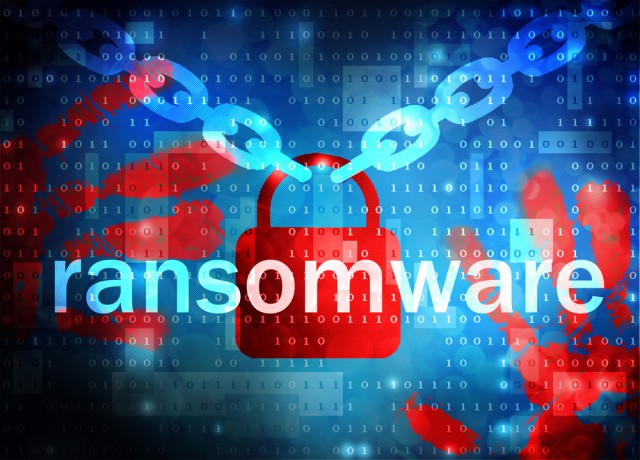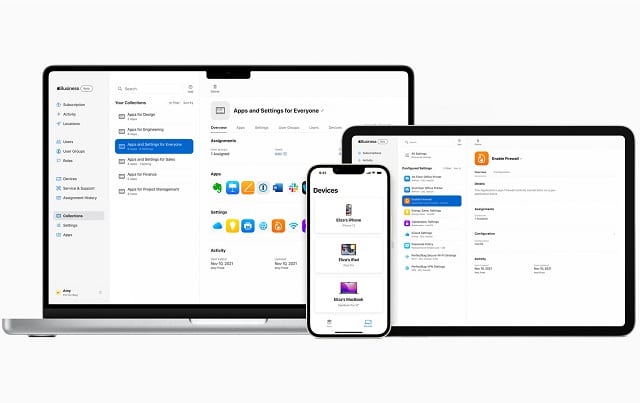
Sink or swim: Why your business resiliency depends on your Active Directory recovery strategy
Who could forget the infamous NotPetya attack of 2017? Within hours, malware crippled companies around the globe -- most notably shipping giant Maersk. Because while Maersk had backups of many of its mission-critical servers, no one at the company could locate a single backup of a domain controller. In other words, a backup of their Active Directory (AD) was all but lost -- leaving the company at a complete standstill. In total, the attack cost the shipping giant a whopping $300 million.
In today’s business world, as successful cyberattacks remain the norm, it’s imperative that organizations have backups in place for when a cyber incident inevitably occurs. And the best place to start mapping out your disaster recovery strategy is around your AD: the operations backbone of your organization.

Why remote workforces need better strategies for security and data protection [Q&A]
The last couple of years have seen businesses undergo a major shift to remote and hybrid working, largely driven by the pandemic. But this same period has also seen record numbers of data breaches.
Often these attacks begin with phishing to get hold of credentials which can then put both in-house and cloud systems at risk.

Will our new edtech toys grow old quickly?
Universities in the UK and beyond have found themselves at the forefront of a revolution in digital teaching provision, driven by necessity and yet all but unplanned. There have been successes which will continue to form part of learning and teaching for the foreseeable future, such as the adoption of more flexible communications platforms and wider use of blended learning techniques. But there have also been challenges, not least with accessibility, but also with the management of student and postgraduate expectations.
This mixed picture has been reflected in disparate feedback from students. Jisc reported that two-thirds of students rated their online learning this year positively, but also found that only a third found the experience engaging, while many struggled to access newly-adopted platforms and resources.

Why real-time analysis is key to making better use of data [Q&A]
Businesses of all types generate ever larger quantities of data, but while this should be an invaluable resource to drive decision making the sheer volume can create difficulties.
Analyzing data in real time is the ideal but it can be surprisingly hard to achieve. We talked to Ariel Assaraf, CEO of data streaming specialist Coralogix, to find out how enterprises can face the challenges posed by real-time analysis.

Five signs your technology is enabling your business
We live in a world that's driven by technology. It has seeped into every part of our lives and the corporate realm is no exception. In fact, during the peak of the pandemic, the quick adoption of innovative technology helped many organizations survive. However, entities must invest in the right technology that will enable strategic, operational and cost impact. There are both quantifiable and intangible benefits in choosing the right technology stack for a company.
The right tech helps to facilitate a workplace that attracts and retains talent, increases employee engagement, lowers operational costs, raises revenues and even boosts organizational stability. And while technological solutions can have a tremendous impact on a company’s ability to meet its business objectives, they need to be deployed intelligently to address specific problems or pain points.

Two-thirds of UK business leaders expect more cybersecurity threats
Around two thirds (66 percent) of UK business leaders expect the threat from cyber criminals to increase over the next 12 months, according to the latest PwC cybersecurity survey of business and technology executives.
In the past year ransomware has had a significant impact on organizations already dealing with the challenges posed by the Covid pandemic, and 61 percent of executives expect to see an increase in reportable ransomware incidents in 2022.

How businesses can improve their third-party security [Q&A]
In recent years many of the most high-profile cyberattacks have come through the supply chain, involving third-party suppliers and partners.
It's historically been difficult for businesses to assess third-party risks, often involving time consuming manual processes in order to do so.

IT leaders want to move from mainframe to cloud
A new survey of 650 IT leaders around the world shows that while 96 percent consider their organization's mainframe applications as important or critical to business operations, 98 percent would consider migrating off the platform.
The preferred destination for these apps is the cloud, with 82 percent of respondents saying they would use public and/or hybrid cloud deployment models if they were to move their organization's applications off the mainframe.

Organizations want secure multi-cloud but aren't putting in sufficient resources
A new survey of more than 200 IT leaders in the US finds that 95 percent of businesses are making multi-cloud a strategic priority in 2022 with security being top of mind.
However, only 54 percent feel highly confident that they have the tools or skills they need to execute the strategy. In fact, when it comes to multi-cloud operations in general, 76 percent of respondents believe it is 'under-invested' at their respective companies.

How effective communication can boost the IT team's effectiveness [Q&A]
One of the keys to the success of an IT team is the ability to communicate both within and outside the team, something that is as important as talent or knowledge.
But for this to work buy-in from executives and business managers is essential to ensure IT managers can achieve their department goals.

Enterprises unprepared for ransomware attacks over weekends and holidays
A lack of preparedness for ransomware attacks on weekends and holidays has a significant impact on victim organizations according to a new report.
The study from Cybereason shows 24 percent of companies have no security plan for holidays and weekends and 43 percent say that attacks at these times take longer to stop.

How old, incomplete, and inaccurate data can hurt businesses
Across the board, from operations to finances to customer satisfaction, the wrong data -- old, incomplete, and inaccurate information -- sets business back. According to MIT, "The cost of bad data is an astonishing 15 percent to 25 percent of revenue for most companies."
The differences between these errant data are important. Also important is understanding that, strictly speaking, there is no "bad data." "Bad" makes data subject to the interpretation of a value judgment. A better, more descriptive term would be "technical debt." This is when engineers begin to indiscriminately start to modify code and introduce new features. Over time, features are layered one on top of another and, if unchecked, teams sacrifice long-term efficiency via a durable, hard-won solution for the sake of easier, short-term approaches that yield a quick solution.

Three-quarters of IT departments face critical skills shortages
A new report from digital learning company Skillsoft finds that 76 percent of IT decision makers worldwide are facing critical skills gaps in their departments -- a 145 percent increase since 2016.
The report looks at the reasons for this and reveals that 38 percent cite the rate of technology change outpacing their existing skills development programs as the primary driver, followed by difficulty in attracting qualified candidates (35 percent) and lack of investment in training resources (32 percent).

Apple Business Essentials launches in Beta
Do businesses use Apple products? Well, iPhone smartphones and iPad tablets without a doubt. Are Mac computers used in the business world though? Not so much. Typically, the only Mac you see in an office belongs to the resident artsy employee that works on designing things. For the most part, Microsoft Windows still reigns supreme in the Enterprise.
With that said, some companies are all-in on Apple hardware, forgoing Windows for computers running macOS instead. True, it is rare, but some businesses do it. And now, if a small business has 500 or fewer employees, Apple is making it easier than ever to manage iPhone, iPad, and Mac computers. Launching today in Beta, Apple Business Essentials is a seemingly elegant solution for setting up and managing Apple devices, but also, the service offers assistance with things like backing up data, security, repairs, and more.

85 percent of businesses adopted new security protocols due to COVID-19
New research from SecureAge Technology finds that 85 percent of US and UK employers have been forced to adopt new cybersecurity measures as a result of the COVID-19 pandemic and the shift to remote work.
Of those that adopted new cybersecurity defenses, both US (41 percent) and UK (38 percent) businesses note that 'technical implementation challenges' are the primary hurdle in getting their new COVID-driven cybersecurity protocols and strategies in place.
